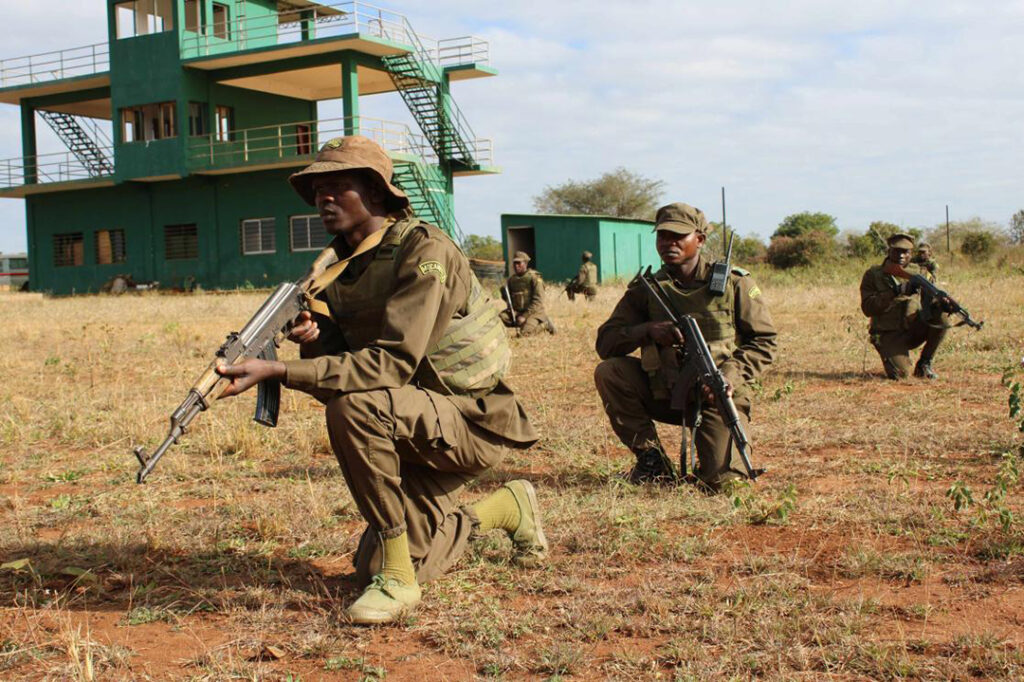ADF STAFF
Joint operations by the Armed Forces of Mozambique (FADM) and partner militaries in August killed three leaders of the Ahl al-Sunna wal-Jama’a (ASWJ) extremist group that has terrorized Cabo Delgado province for years.
FADM “continues to be active in the safety and defense of Mozambique and Mozambicans,” the statement said. “However, at the moment, they are gathering more information about other movements about other [ASWJ] members, which will be made in due course.”
The battlefield success happened shortly before the start of Gamba 2023, a training exercise meant to assess the preparedness of two Mozambican quick reaction forces to fight terrorism in Cabo Delgado. The forces primarily are used as first responders in high-intensity crises, especially those that threaten specific regions.
The exercise was part of a 16-week training cycle led by the European Union Training Mission Mozambique (EUTM MOZ). The exercises were conducted at training camps in Katembe, Dongo and Mavalane in southern Maputo province. The quick reaction exercise concluded at the end of August.
The EUTM MOZ’s mandate ends in early September 2024. Besides training quick reaction forces and other military forces to fight terrorism in Cabo Delgado, the mission offers humanitarian assistance and works to prevent conflict and support dialogue.
Recent events underscored the importance of the training. On August 22, FADM, Rwanda Defense Forces and Southern African Development Community Mission in Mozambique (SAMIM) forces killed ASWJ leader Bonomade Machude Omar, also known as Ibn Omar or Abu Suraka.
Omar was killed during an ambush on a FADM convoy in coastal Macomia. Up to nine Mozambican Soldiers were killed during the attack, in which the terrorists used rocket-propelled grenades and small arms to immobilize an armored personnel carrier.
According to the Mozambican Army, Omar was the main leader of terrorist attacks that have affected Cabo Delgado since 2017, killing at least 4,000 civilians and displacing about 1 million people.
Last summer, Omar was summoned to a meeting of Islamic State group leaders and told to avoid killing so many civilians and instead collect more taxes, according to the Centre for Investigative Journalism in Mozambique.
The chief of staff of the Mozambican defense forces, Gen. Joaquim Rivas Mangrasse, said Omar’s death did not mean the Cabo Delgado insurgency was over. He noted in a Voice of America report that troops will need to continually search forests to detect and neutralize terrorists.
Mozambican President Filipe Nyusi agreed, emphasizing that the fight against terrorists will continue, even when they are forced to operate in small groups.
According to the Institute for Security Studies (ISS), insurgents displaced from Palma, Mocímboa da Praia and bases along the Messalo River already have split into smaller cells, adapted to new conditions and launched coordinated attacks in several areas.
There also is tension among troops deployed in Cabo Delgado. They sometimes compete with one another, trade accusations of failing to share information and have experienced friendly fire incidents. Mozambique’s quick reaction forces will have to navigate these challenges.
“The current hard security resources in Cabo Delgado do not match the type and size of terrain the insurgents are operating in,” wrote ISS consultant Borges Nhamirre. “Lack of air assets, fire-force and hot-pursuit assets are major factors.”

